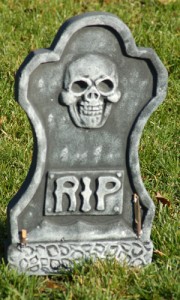 More Edgy Screenwriting
More Edgy Screenwriting
In Part 2A of the Edgy Screenwriting series, I discussed why killing your hero is not a great idea for a spec script. But if you’re afflicted with the stubborn gene, and determined to kill your hero/protagonist anyway, this article explores some ways to do it right.
I always find the best approach is to look at movies where edgy screenwriting works and then reverse engineer them. But always keep in mind there are many variables at play in Hollywood.
The death of your hero requires not only perfect execution (no pun intended), but requires sympathetic readers, producers, studio executives, directors, actors and test audiences. There are a lot of links in the chain that be easily be broken at any time. So kill your protagonist at your own risk.
13 ways your hero can get away with dying
Note: Often times a satisfying hero’s death will simultaneously incorporate many of these methods (listed in no particular order). These types of deaths are not just limited to main characters either. Beloved secondary characters will often exit utilizing these methods.
- The death is foretold or shown
We see or are told about the hero’s death up front, so that when the death comes we’ve already accepted it as an inevitable tragic outcome. It imbues the film with dramatic tension where we wonder throughout: How is it going to happen? Who is going to kill him? Why are they going to kill him? - The hero was already dead
We either find out that the hero was dead the entire time, or we see his death early on and enjoy the hero’s supernatural exploits. - The hero sacrifices himself for another
When the hero performs this noble act (for another character or characters we care about), we respect and admire the decision — if it’s necessitated. - The hero’s death reinforces the theme
This one is required for almost all hero deaths. The death must support and reinforce the argument the movie is trying to make, and teach us something. - There’s a brilliant twist involved
Sometimes, if a twist that involves the hero’s death is spectacular, it can trump our desire to see the hero make it out alive. - The hero achieves peace
If the hero is a troubled soul, sometimes dying can bring about more peace than living can. - The hero wins by dying on their terms
Death makes the hero untouchable. Sometimes the only way to win is to journey to the other side willingly, usually for an ideal or cause. - The hero is on his last legs
If the hero has lived a long, full life, it’s sometimes easier to let them go. - The hero flirts with death
If the hero has a death wish, or lives by the sword… their death can certainly feel like an inevitable outcome to their lifestyle. Typically their death comes about because they can’t overcome their fatal/tragic flaw. - It’s an historical event
If your hero is a real life figure, odds are we’ve already accepted their death during history class. - It’s a religious experience
If your hero dies, but we see that they are going to a better place, it’s an up-ending. - The hero’s a monster
If your hero is a monstrous killing machine, it’s much easier to accept their eventual demise. - We don’t see the actual death
If we don’t actually have to see their death (either because the movie ends before the moment, or it happens off-screen), it’s easier to swallow. And who knows, there’s a small chance they even survived.
13 ways — see I told you it was unlucky1 to write that kind of ending!
Now let’s look at some examples.
SPOILER ALERT! SPOILER ALERT! SPOILER ALERT!
This article discusses the ends of a number of movies. I can’t even post the names of the movies as a heads-up because that, coupled with the title of this article, would still spoil the ending of the movie. It’s likely you already know the endings of these famous movies, but all the same, you have been warned.
Examples of movies where the hero/protagonist dies
Again, a quick reminder that most movies (wisely) employ a number of these methods. Therefore, many of the movies cited could easily have been listed in multiple places. I’ve only listed a couple of examples but, yes, I’m aware there are probably more obvious ones.
1. The death is foretold or shown
2. The hero was already dead
3. The hero sacrifices himself for another
4. The hero’s death reinforces the theme
- One Flew Over the Cuckoo’s Nest (Theme: Authority oppresses the individual) [Amazon | IMDB]
- Braveheart (Theme: “… our enemies… may take our lives, but they’ll never take… OUR FREEDOM!” [Amazon | IMDB]
5. There’s a brilliant twist involved
6. The hero achieves peace
7. The hero wins by dying on their terms
8. The hero is on his last legs
9. The hero flirts with death
10. It’s an historical event
11. It’s a religious experience
12. The hero’s a monster
13. We don’t see the actual death
Do you have a satisfying way for your hero to die that isn’t listed? Please post it below.
- A number of movies where the hero dies have won awards, or are some of the most beloved movies of all time, or both. However, keep in mind that statistically speaking, you’re better off writing a spec that doesn’t involve your hero’s death. ↩





While the spoiler alert is nice, the big American Beauty image at the top of the page, long before the spoiler alert, undermines the effort for that particular title. 🙂
Mo — crap you’re right! I tried to go with a movie that “everyone” knew the ending of (and that revealed its own tragic ending withing the first 2 minutes of the film) — but that’s never possible. I’m going to change the pic. Thanks for the note!